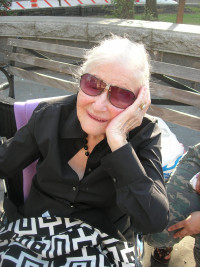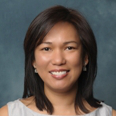LiLY Board

(Photo courtesy of
Irene Zola)
The LiLY Board consists of committed persons dedicated to carrying out their ideals in the practicalities of the every day world. Here they are listed alphabetically by last name.
-
Since 1997, Ron Bruno has served as Executive Director at MRHS, which is one of New York’s first NORC’s. Prior to this position, he was Director of Social Work at Amsterdam Nursing Home, and at Saints Joachim & Anne Nursing and Rehabilitation Center in Brooklyn. He earned his MSW from Hunter College, which is also where he received a New York State Certificate in Social Work Administration. Bruno has presented workshops about NORC programs at the annual meetings of the ASA, the Alzheimer’s Association and the Pioneer Network. In 1994 he published Policy for the People: One Facility’s Introduction to Restraint Reduction, a paper exploring the effect ofOBRA ’87.OBRA ’87 Omnibus Budget Reconciliation Act of 1987 (OBRA), 42 U.S.C. § 1395 - 1396 (1999), is the federal code regulating Nursing homes facilities. Under OBRA, state governments are responsible for licensing and certifying nursing homes in their states. In order for these facilities to receive Medicare or Medicaid, they must comply with OBRA provisions.
The National Consumer Voice for Quality Long-Term Care (formerly NCCNHR) has an excellent summary of OBRA ’87 from which its first paragraph is taken as follows:In 1987, President Ronald Reagan signed into law the first major revision of the federal standards for nursing home care since the 1965 creation of both Medicare and Medicaid …. The landmark legislation changed forever society's legal expectations of nursing homes and their care. Long term care facilities wanting Medicare or Medicaid funding are to provide services so that each resident can “attain and maintain her highest practicable physical, mental, and psycho-social well-being.”Another good description of OBRA ’87 is Nursing Home Residents’ Rights.He is also treasurer of the WSIACA , an Educational Coordinator for the HPPAE at the CUSSW, and co-chair of New York’s NORC program directors’ group.
-
Lois Freedman began her career in late 1970s as an industry accountant. In the early 1980s, she joined a major brokerage firm as a Financial Consultant and Administrator. Immediately prior to joining Marc B. Freedman, CPA, PC, she was associated with an equity management firm that specializes in the selection of quality growth stocks. Lois has a BS degree in Accounting from Trenton State College, and an MBA in Finance from Pace University. She joined Marc B. Freedman, CPA, PC, in January of 1990.
-
Andrew Jenkins, MBA
Board PresidentAndrew Jenkins joined Muzinich & Co from Barclays Capital where he worked as a Senior Analyst. Prior to that, he worked at Salomon Smith Barney. Andrew holds a BS in Management Science from Carnegie-Mellon University and an MBA from Columbia University School of Business.
-
Jessica Petilla, MD
Board Member
Geriatrician Jessica Petilla received her M.D. at the University of the East Ramon Magsaysay Memorial Medical Center in Quezon, Philippines, in 1991 and was a resident at St. Luke’s Roosevelt Hospital in New York, NY, during 1990–1997. In 1998, she was awarded a Geriatric Medicine Fellowship from the University of Medicine and Dentistry of New Jersey in Newark, NJ, and was Board Certified by the American Board of Internal Medicine, for Internal Medicine in 2000 and Geriatric Medicine in 2001. She is currently affiliated with St. Luke’s Roosevelt Hospital, Beth Israel Medical Center and Columbia University Medical Center (formerly known as the Columbia-Presbyterian Medical Center). She enjoys parenting, traveling, learning about foreign cultures and is interested in the arts. In December 2013, Dr. Petilla went on a one-month medical mission to the widespread areas of havoc and destruction caused by Typhoon Haiyan, the deadliest Philippine typhoon on record and the strongest storm recorded at landfall anywhere (it is known as Typhoon Yolanda in the Philippines).
-
Natalie Ryan, BS, BA
Board MemberNatalie recently worked in the world of Advertising, Sales, Marketing, Media Strategy and Investment. Clients include: Hearst Magazines and various clients across multiple mediums, including print, broadcast and alternative media. In 2006 Natalie “retired” from the corporate world, and she is now working in the fast-paced world of being a stay-at-home mom, living on the Upper West Side with her husband Michael and three young children. Besides chasing her boys around the playground, Natalie enjoys reading, visiting seniors in the Morningside Village neighborhood, studying culinary classes, photography and volunteering at her boys’ grammar and preschools. Natalie graduated from the University of Illinois at Champaign-Urbana with a BS in Advertising and a BA in German Commercial Studies.
-
Angela Lantz Smith, MD
Board MemberAngela Smith first graduated Duke University, summa cum laude, and then Columbia University in 1990 with an M.D. degree and has practiced psychiatry since at hospitals in the New York City area. These include Weill Cornell Medical College/Cornell University, Harlem Hospital Center, Bellevue Hospital Center and NYU Medical Center. She is certified by American Board of Psychiatry & Neurology with a Primary Certificate in Psychiatry (Cert. 48616, 2000) and a Subspecialty in Child & Adolescent Psychiatry (Cert. 5713, 2004). Smith is a member of the American Psychiatric Association, American Academy of Child and Adolescent Psychiatry, Physicians for Social Responsibility and American Association of Community Psychiatrists. Currently she works for the Jewish Board of Family and Children’s Services, where she supervises clinical treatment of patients, including the elderly. Smith has co-authored several journal articles, including an Original Research Article in the JAACAP, entitled Control-Related Cognitions and Depression among Inpatient Children and Adolescents.
-
Audrey Wu, BA
Board Member
Audry Wu, President and Owner of Globalwu Communications, Ltd., has over fifteen years of experience in managing executive conferences and events production. Audrey has been a Vice President at the Institute for International Research, Marketing Manager for the Conference Division of Fortune Magazine She has programmed and worked on over 80 programs both domestically and internationally in Europe and Asia. Prior to her positions in the conference industry, Audrey was credit trained at Chase Manhattan Bank, and worked as a loan auditor and private banker. She is proficient in both English (American born) and Mandarin. Her areas are expertise are in marketing, branding, service delivery, software development and support, as well as ethnic marketing. In addition, Audrey is an artist and dedicates time to studio painting and construction.
-
Irene Zola, MA
Board SecretaryDuring her college years, Irene Zola was Assistant Tax Manager at Amerace-Esna Corporation. Zola graduated Hunter College summa cum laude in 1975 where she received a BA degree and honors in Political Science. She then went on to earn a Master's degree in Economics from the New School for Social Research (1987), where she also completed doctoral level courses. Since 1995, she has taught college Writing classes at Cornell University ILR and at John Jay College of Criminal Justice, where she currently is a member of the part-time English faculty. Zola has also served as Development Office consulting writer for national nonprofit organizations from 1981 to the present. She was Founder and Executive Director of the The Family Annex Childcare & Nursery School (1981-82) and Director of the Bank Street School for Children Summer Camp (1983-84). Zola has written several published articles on grant-writing and education. Her eyes were opened with regard to dire problems faced by the elderly when her mother became ill and lived in a nursing home for several months. This resulted in her founding of LiLY.
